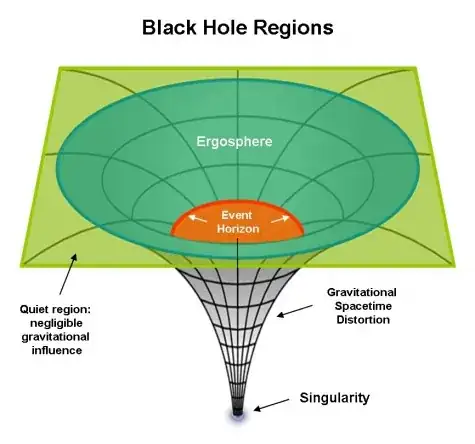Is Relativistic event horizon half of Newtonian event horizon?
relativistic escape velocity formula (from $m\phi=E-E_0$) is $v_e=\sqrt{2\phi-(\frac{\phi}{c})^2}$ and the Newtonian version of the formula (from $m\phi=\frac{1}{2}mv_e^2$) is just $v_e=\sqrt{2\phi}$, in both cases $v_e$ is the escape velocity, and $\phi$ is the gravitational potential. (for black hole $v_e=c$)
$R=\frac{GM}{c^2}$ Relativistic event horizon
where R is the radius of the black hole, or the distance from its center to its Relativistic event horizon. This formula gives exactly half the value as that of the standard Newtonian formula $R=\frac{1}{2}R_s$
$R_s=\frac{2GM}{c^2}$ Newtonian event horizon
or
Is the Schwarzschild radius twice the distance from the center of a black hole to its real event horizon?
or
are black holes only half as large as previously believed (according to relativistic effects)?

(source: cloudfront.net)